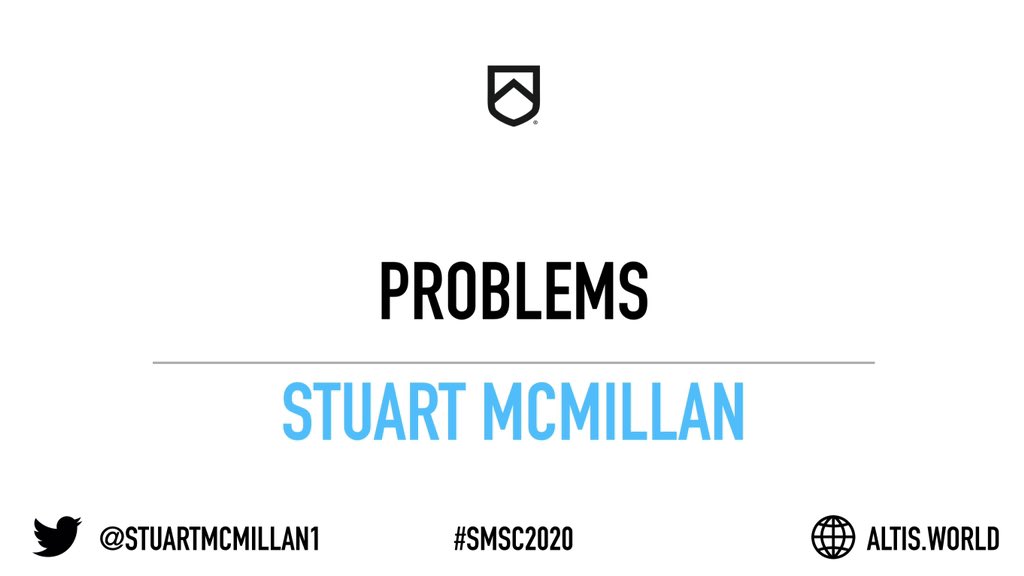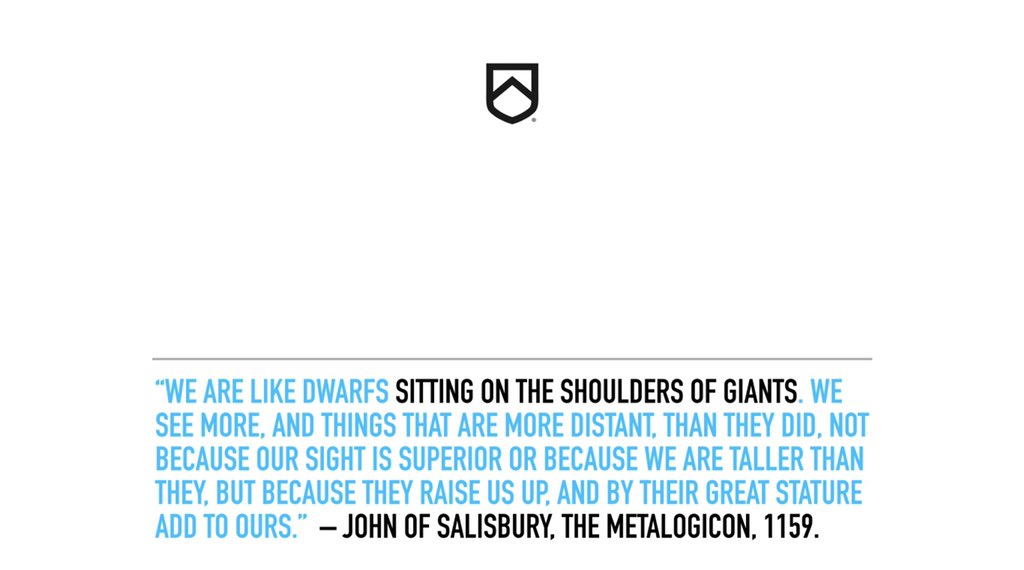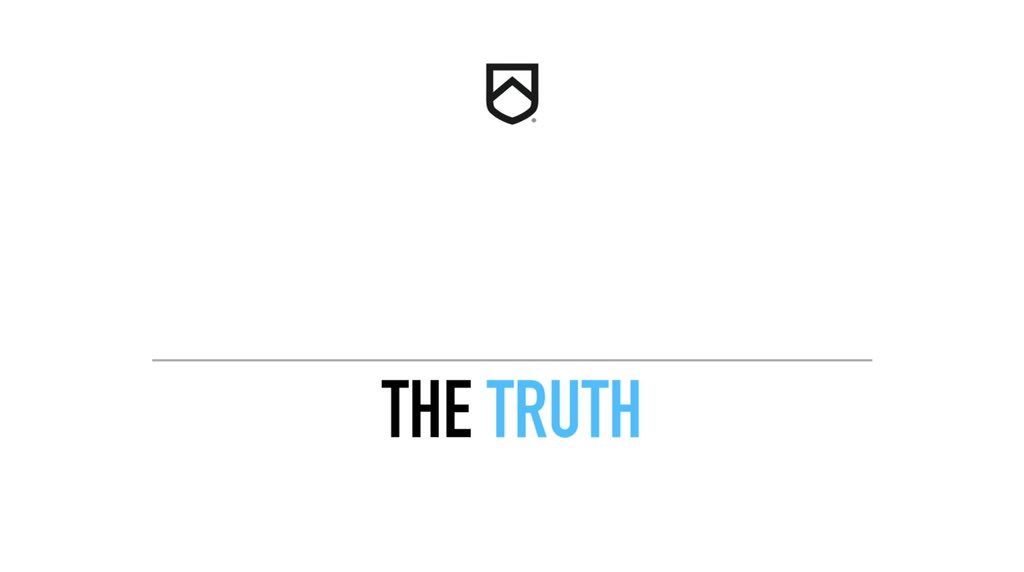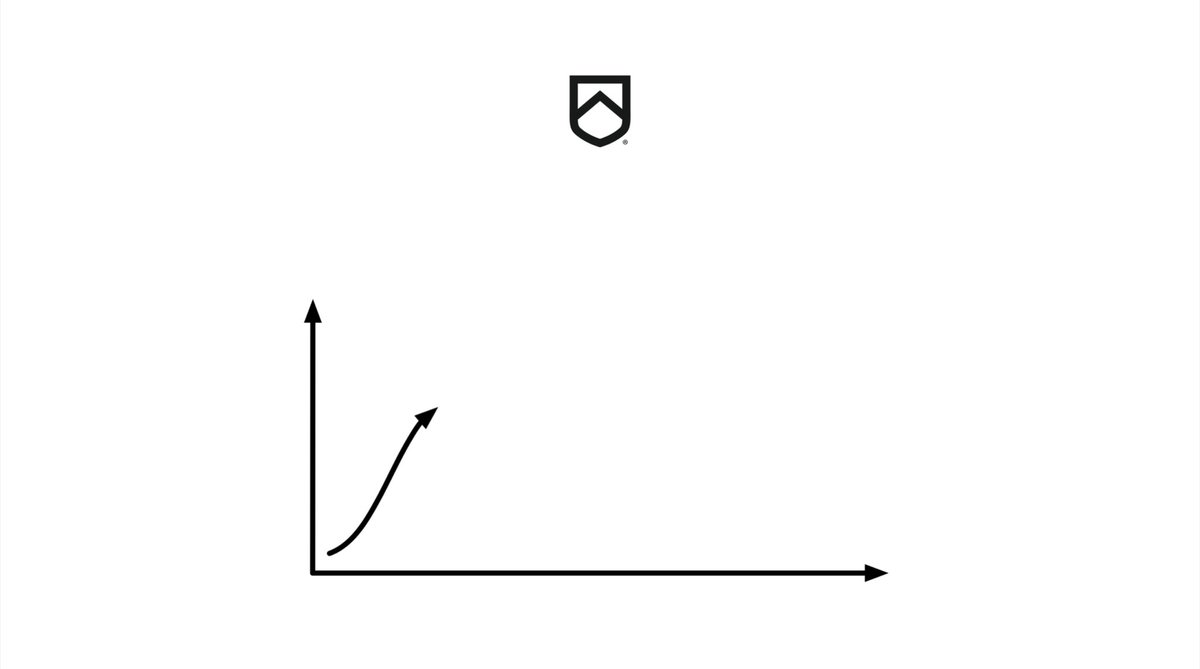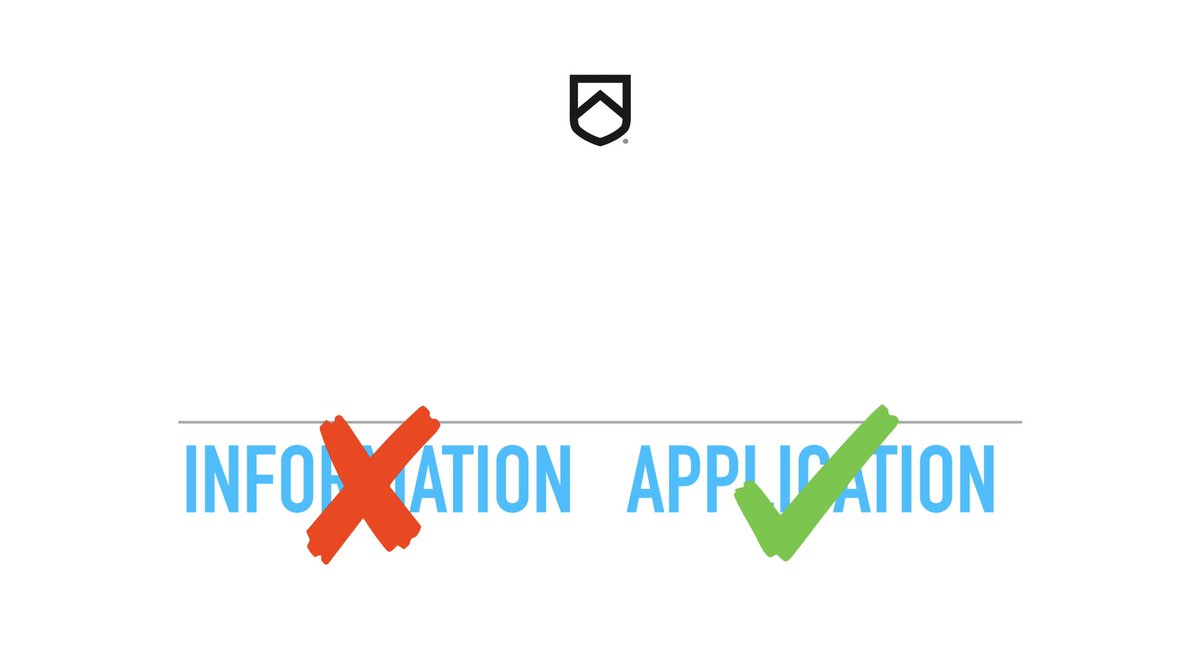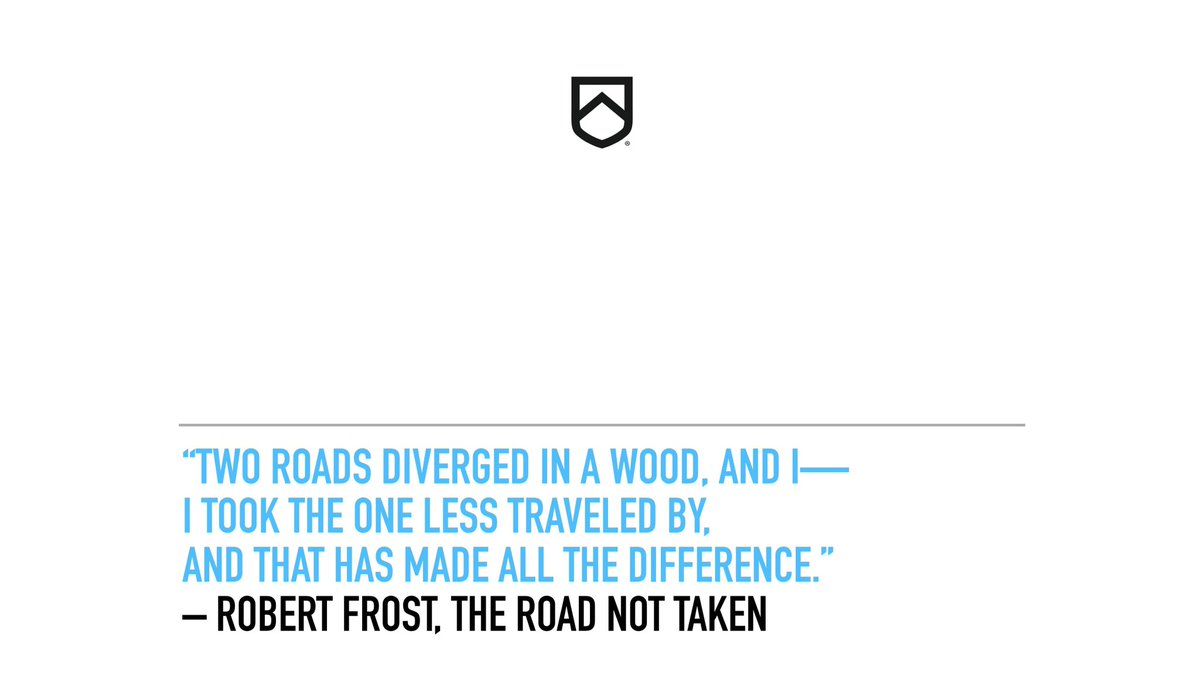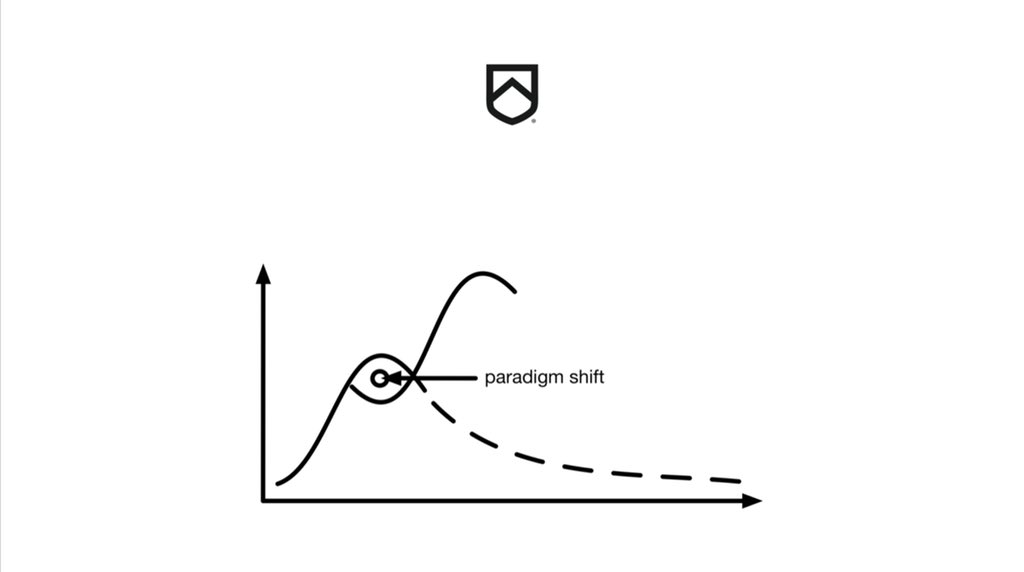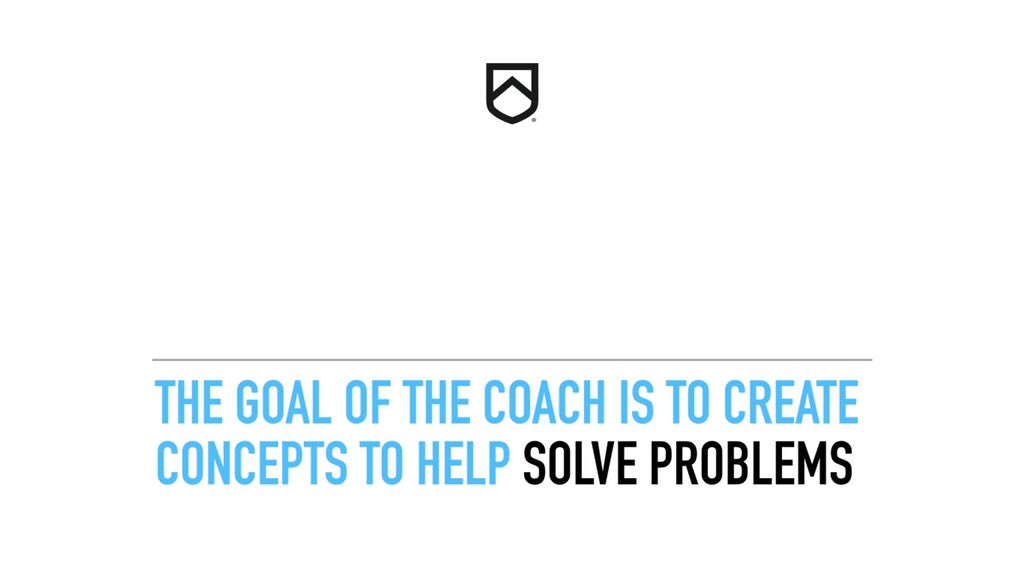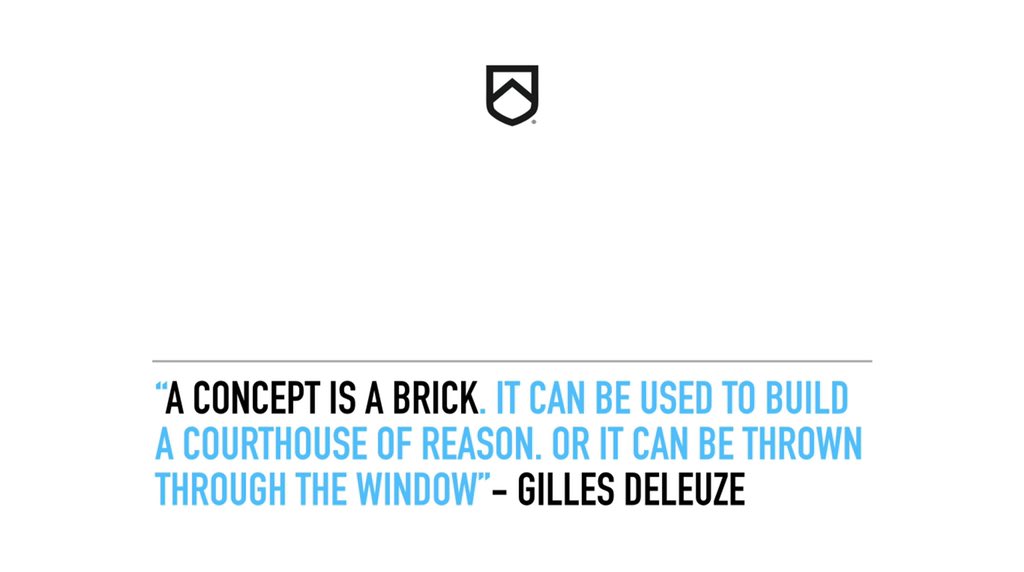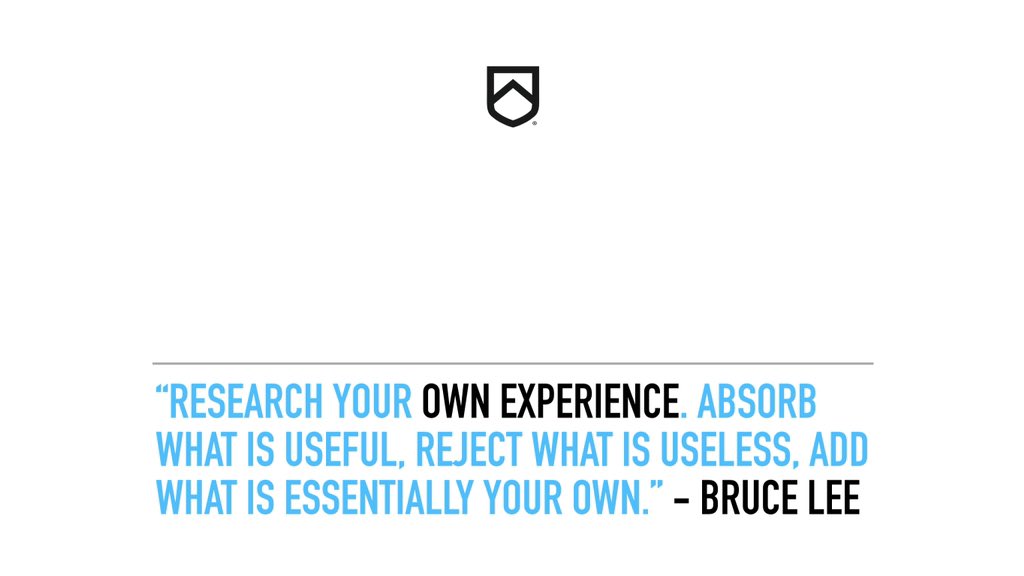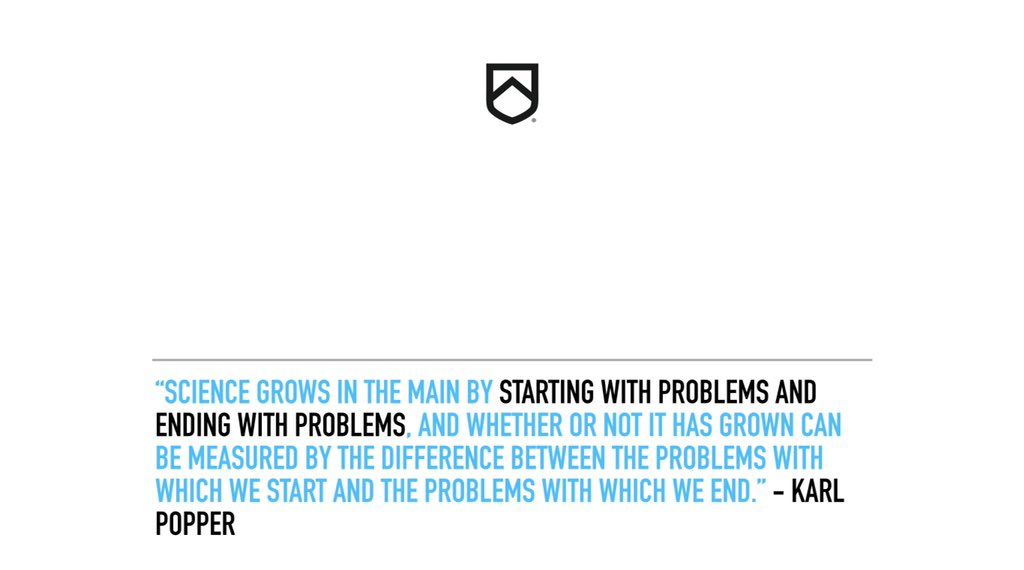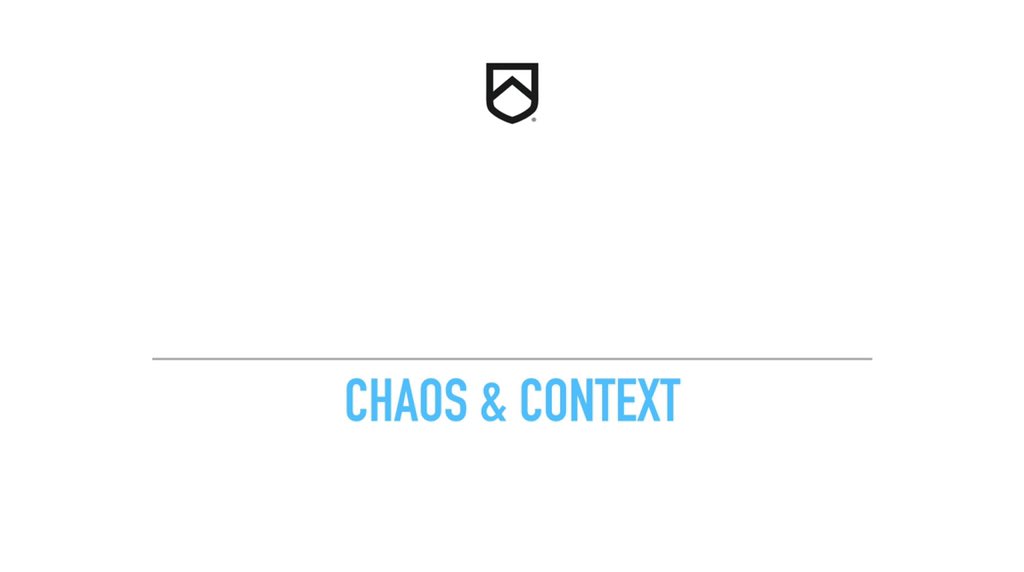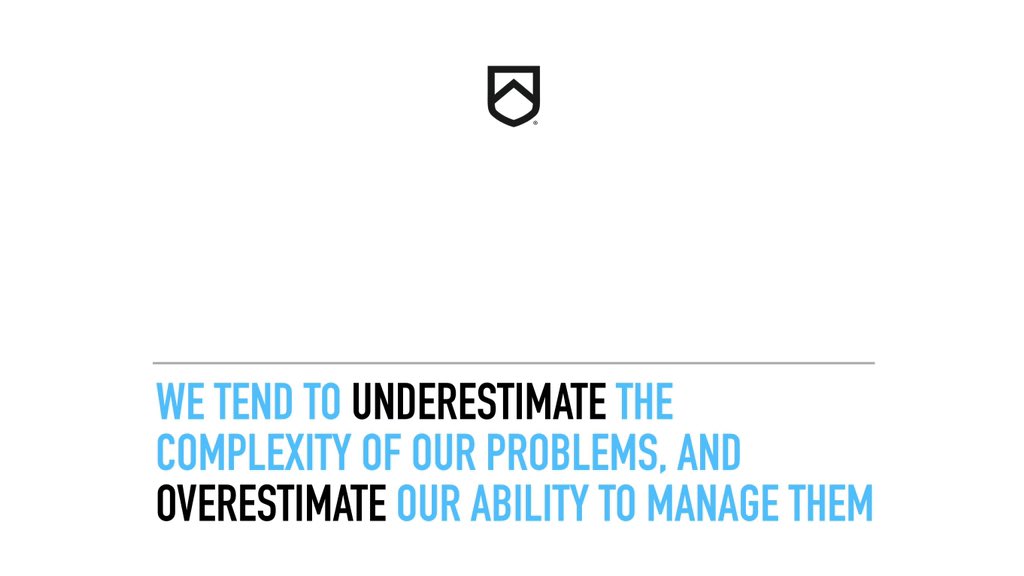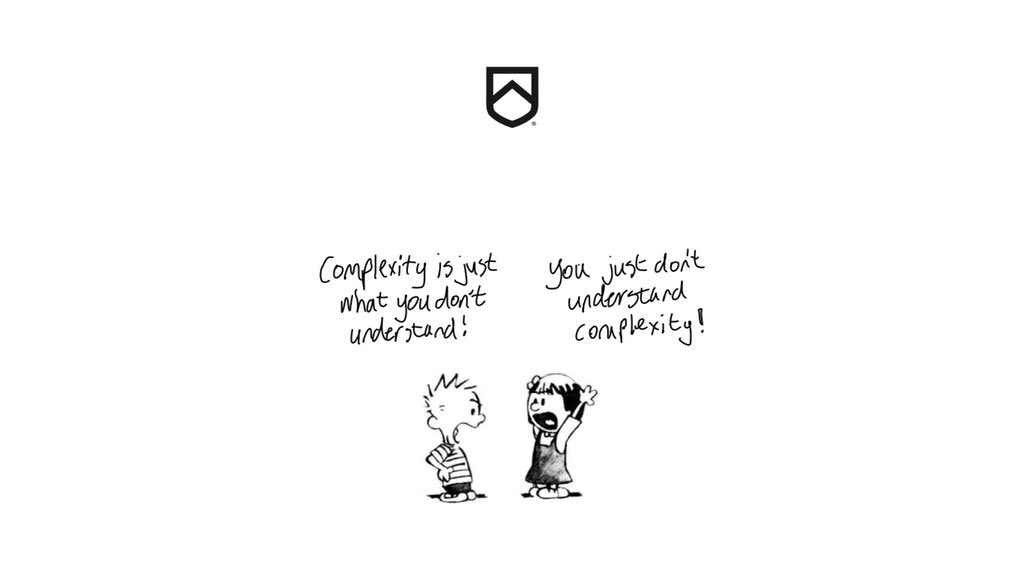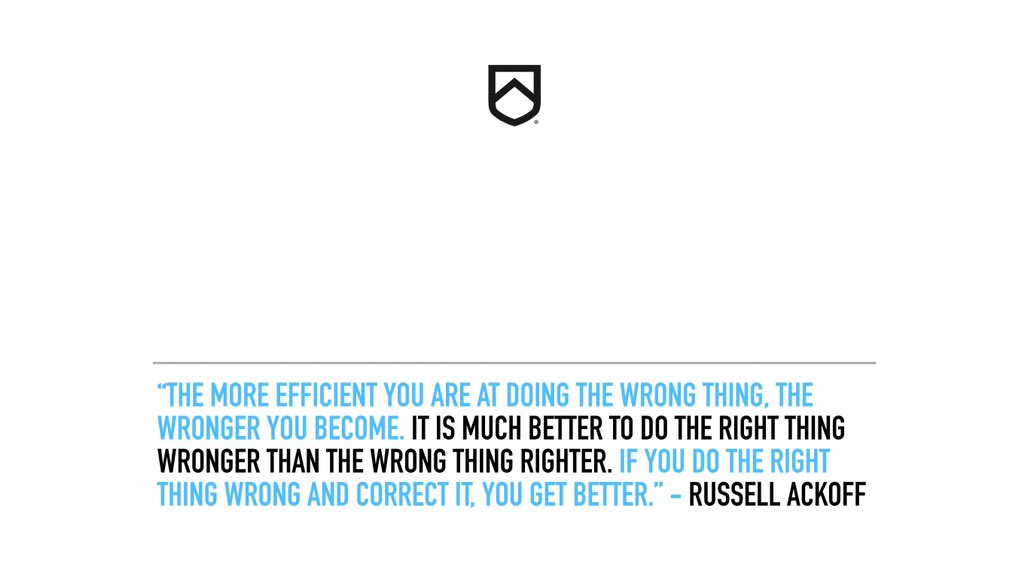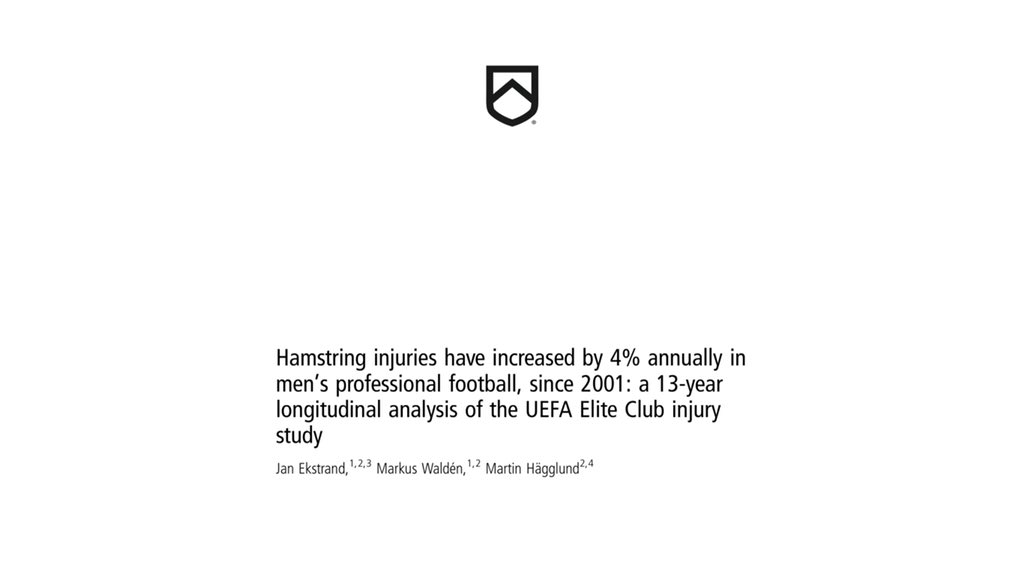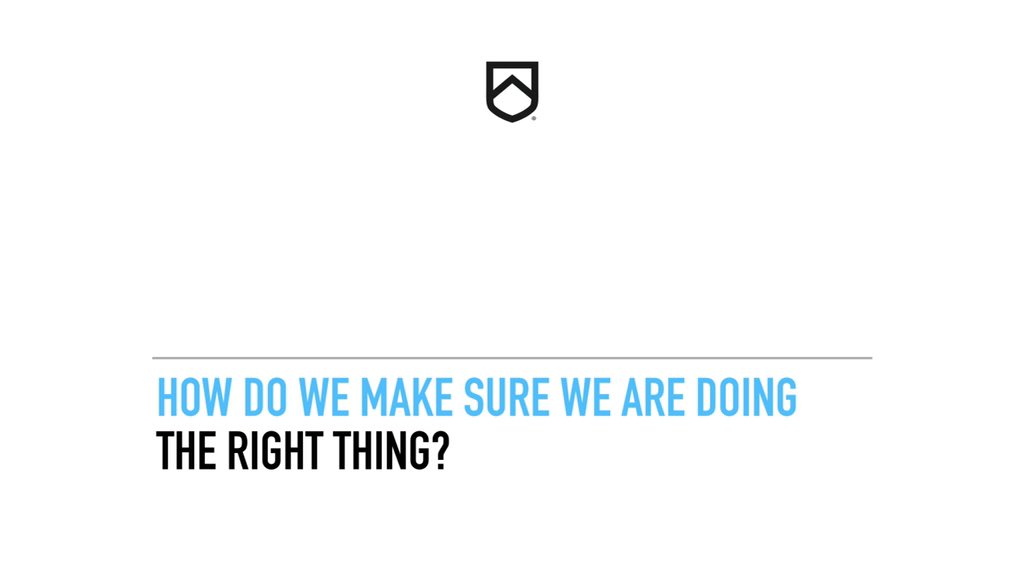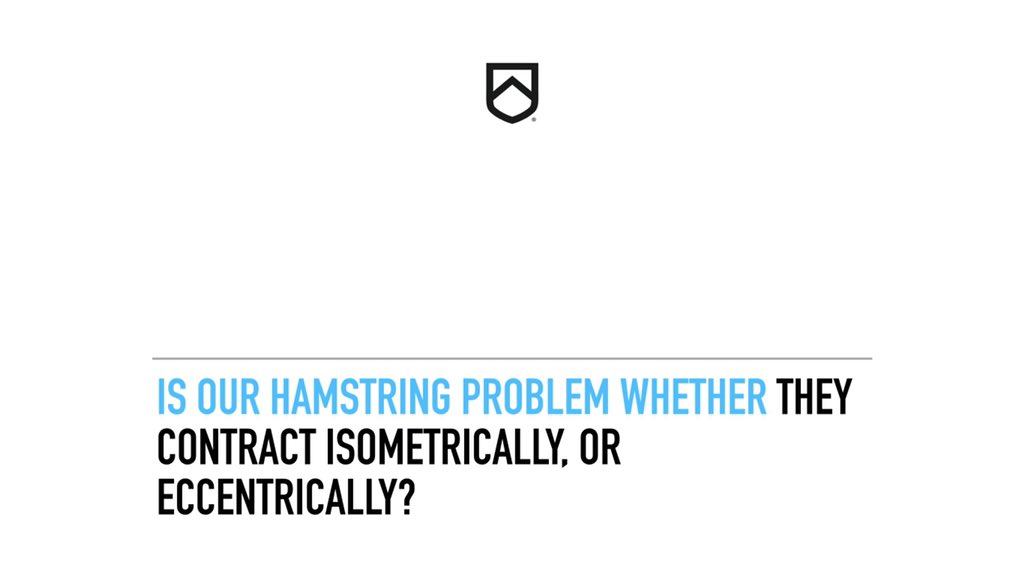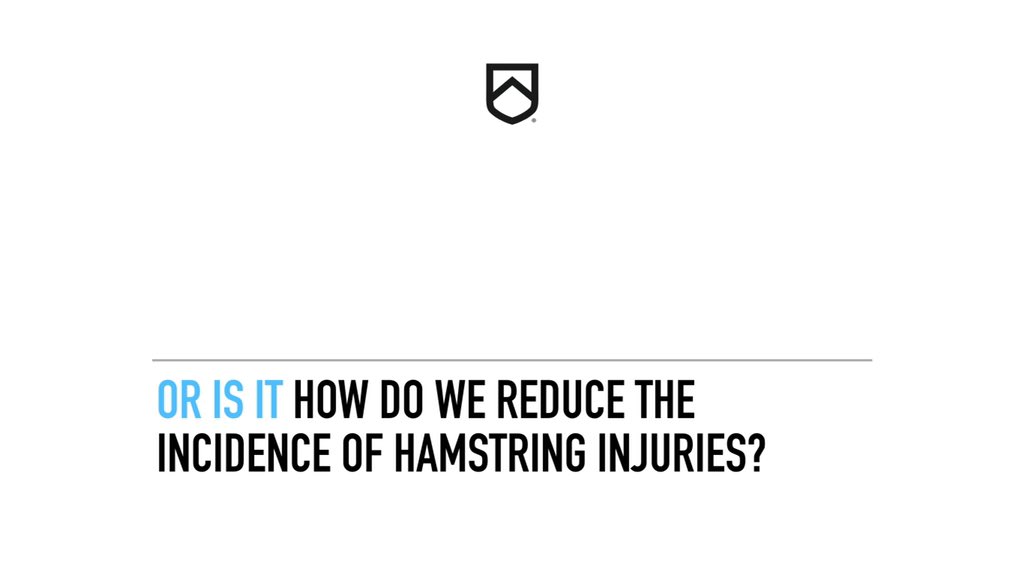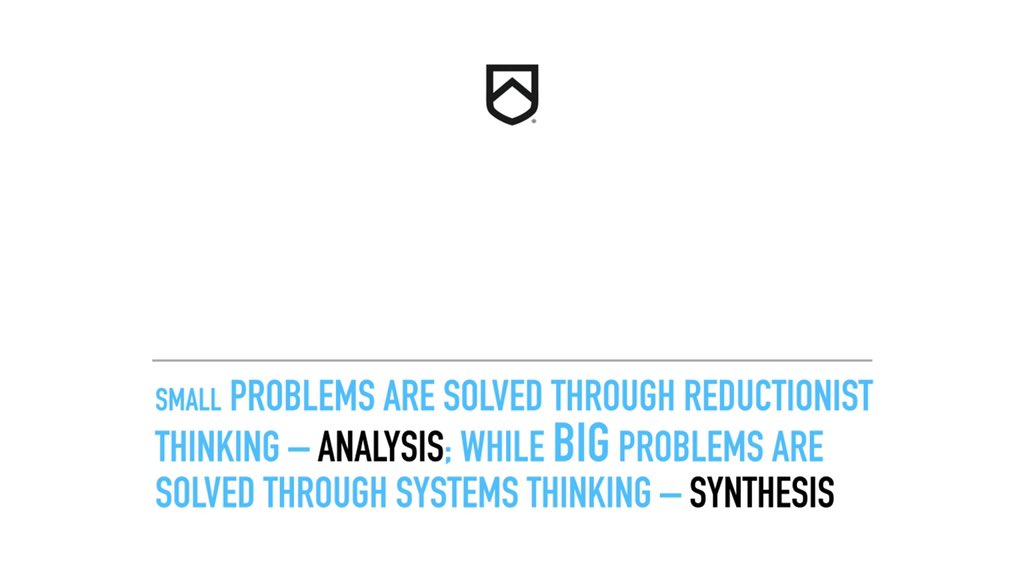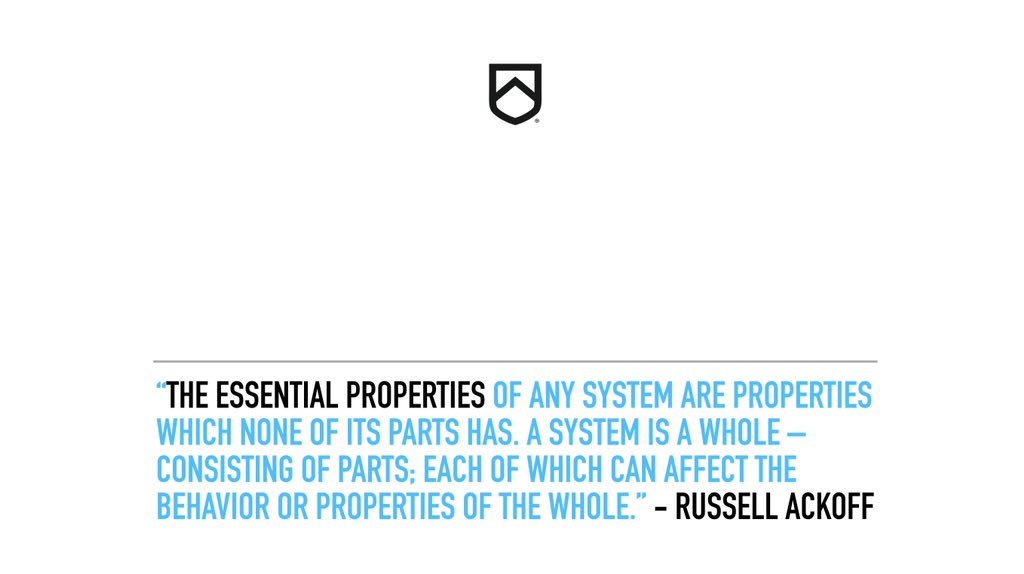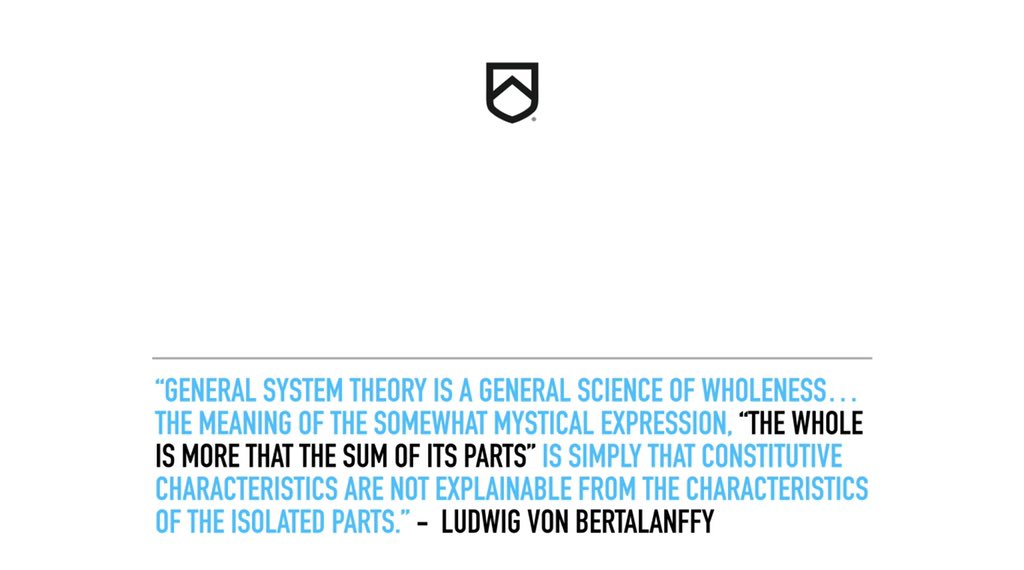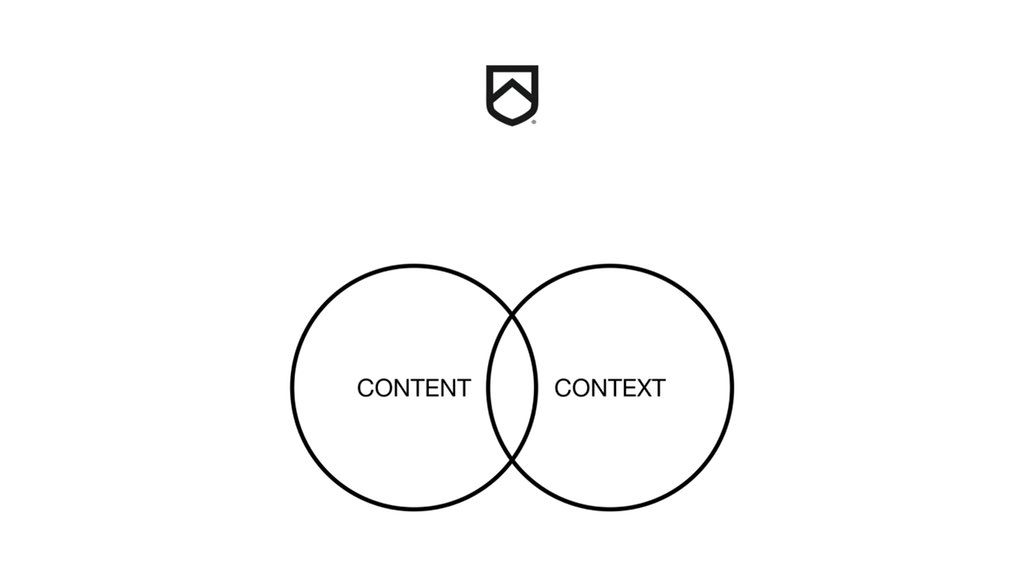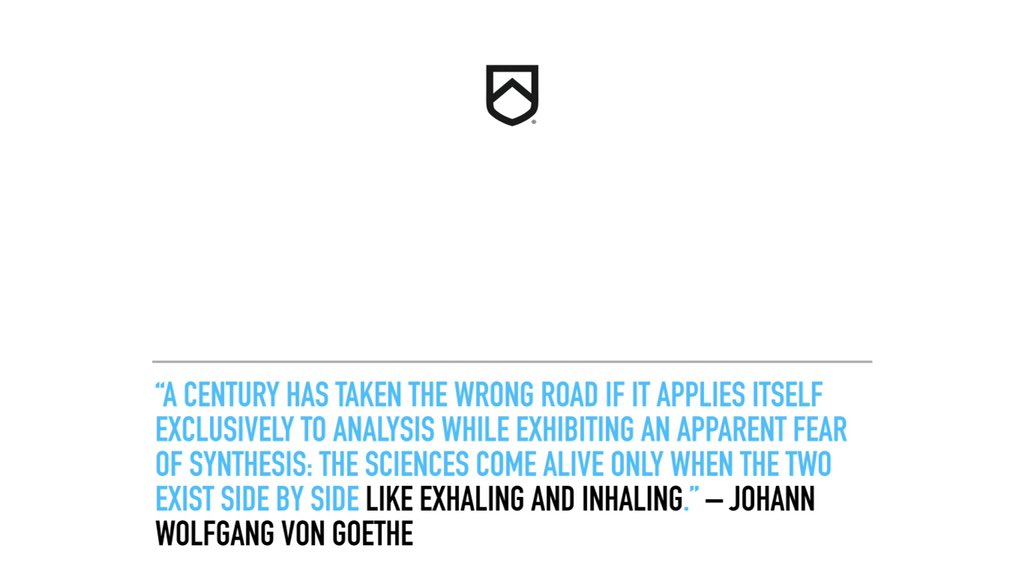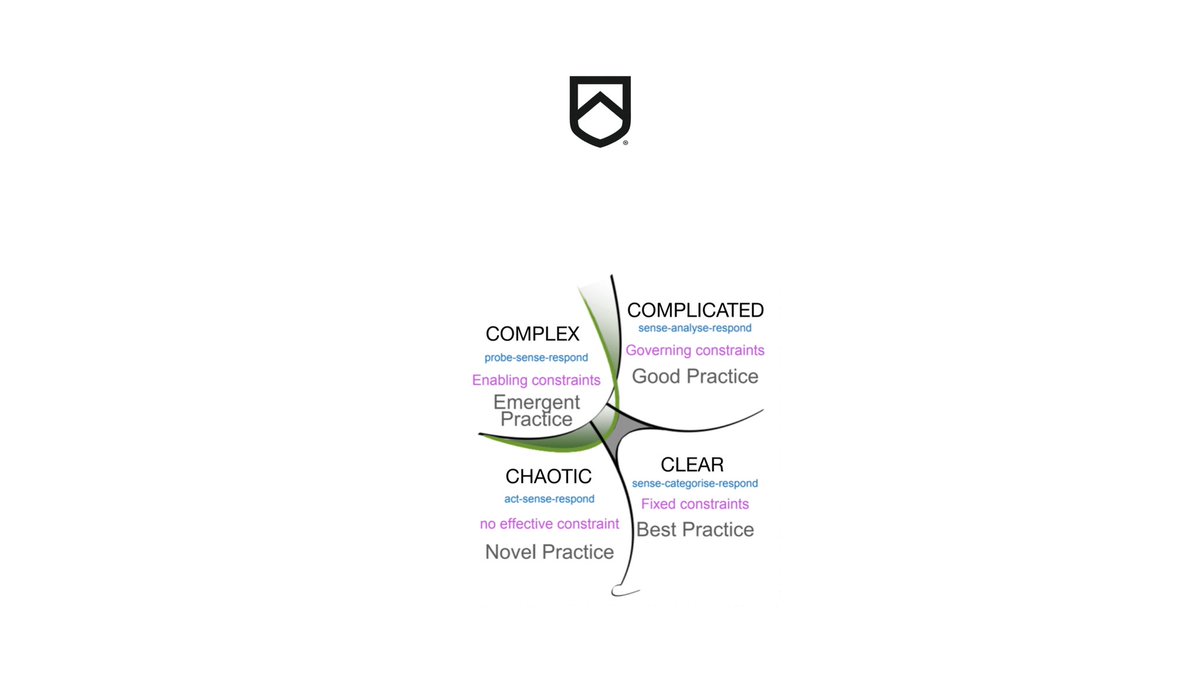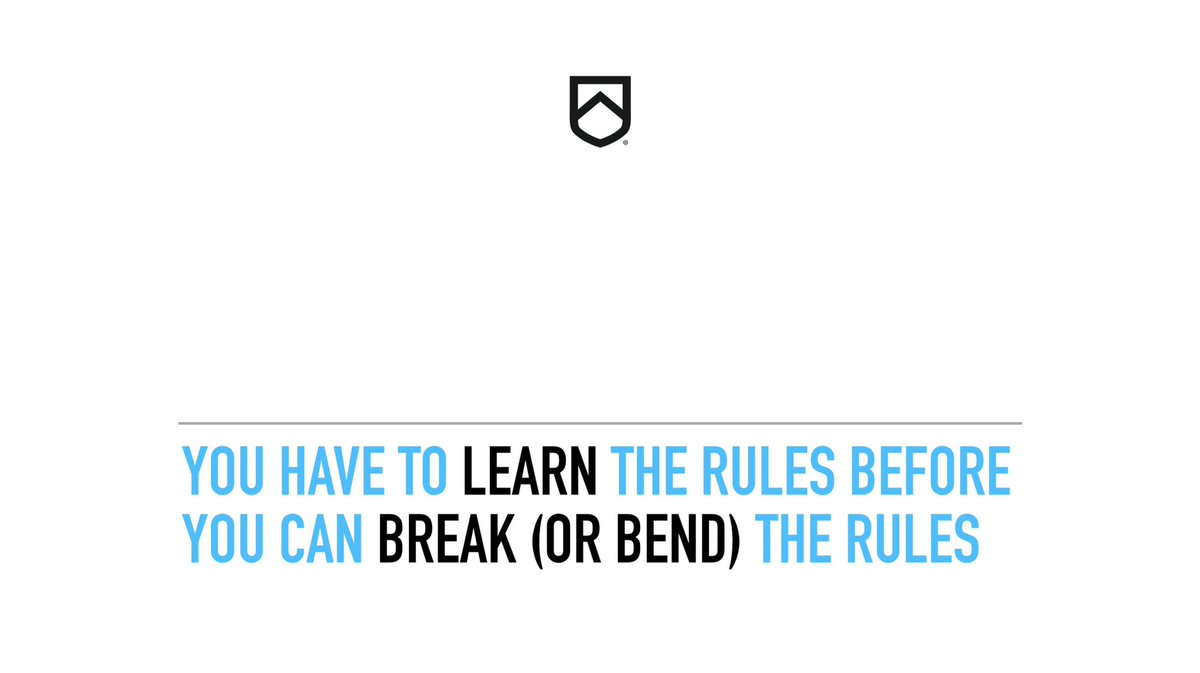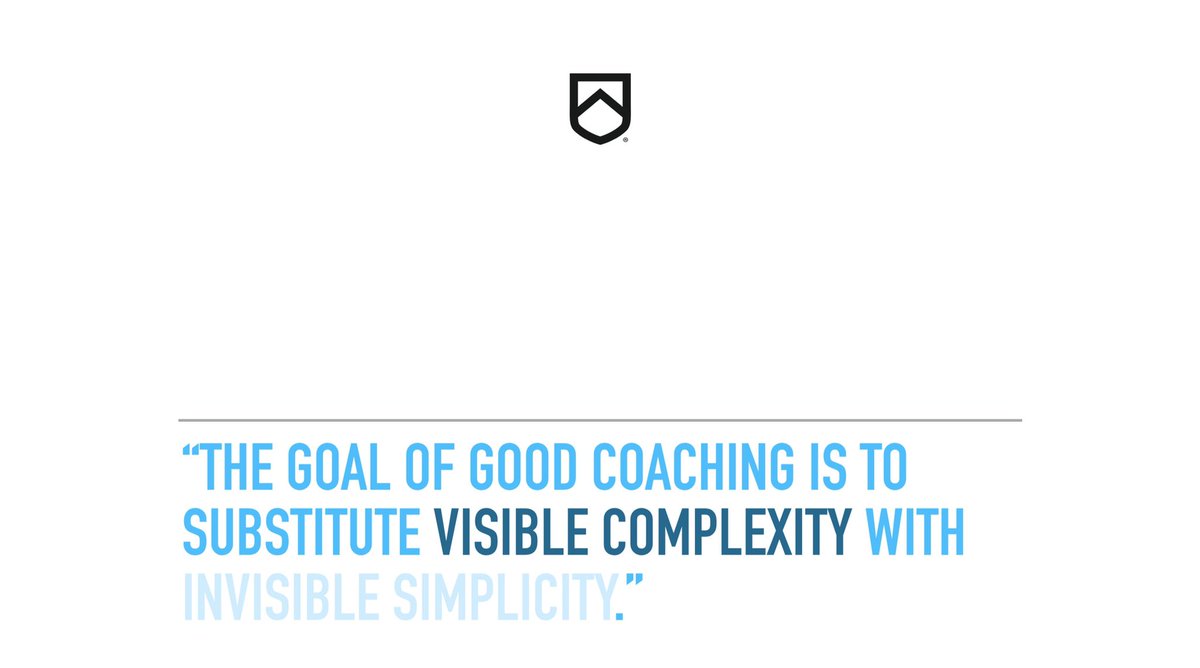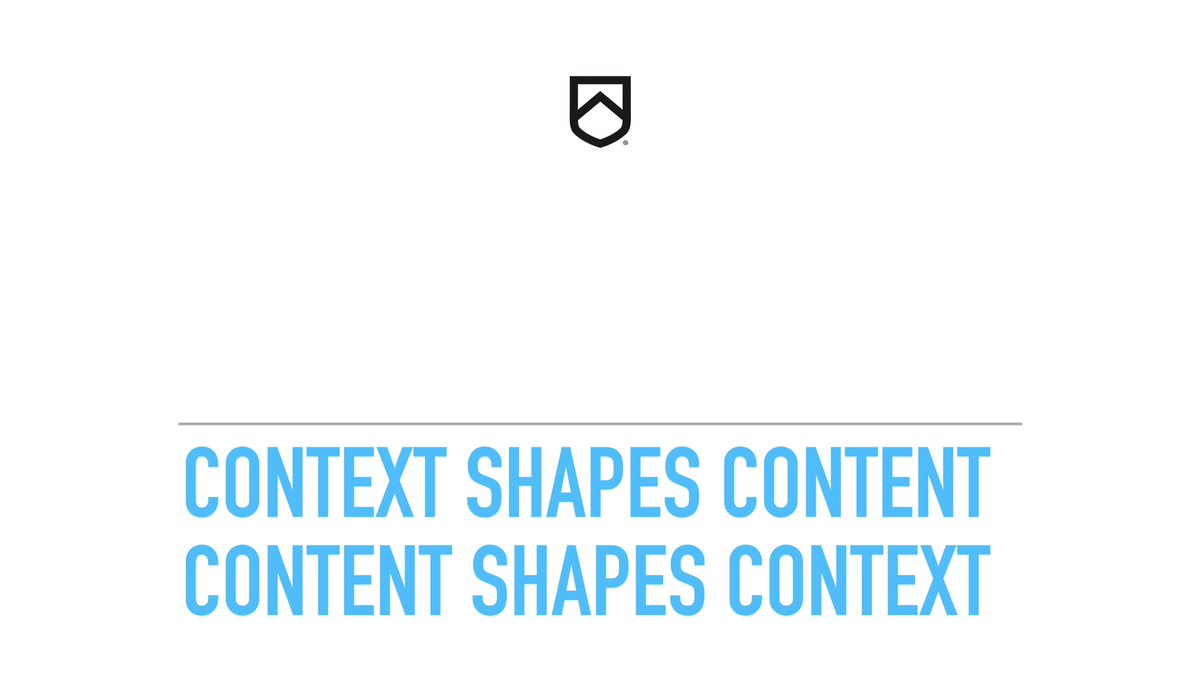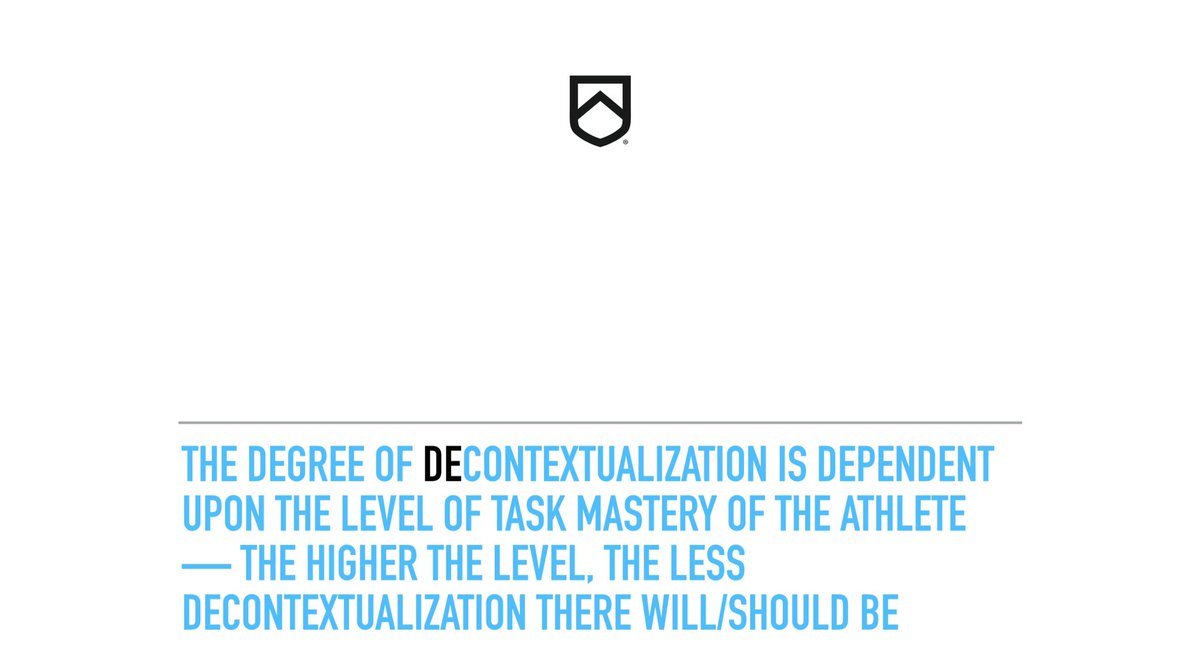Yesterday, I presented at @MovementMiyagi’s #SMSC2020.
I spoke about problems - identifying them, analyzing them, & trialing management strategies. This process is similar whether it is coaches working with athletes, or a *new way of thinking* struggling to find acceptance
I spoke about problems - identifying them, analyzing them, & trialing management strategies. This process is similar whether it is coaches working with athletes, or a *new way of thinking* struggling to find acceptance
I wanted to respect the #SMSC2020 theme of ‘standing on the shoulders of giants’ - so I spoke a lot about the folks I am most-influenced by —> whose ideas provide frameworks for our own work
We are influenced by our contemporaries & our mentors; those we work with now – and perhaps more importantly – those who came before us
It is often said that knowledge is cumulative – improving our understanding and our knowledge with each passing generation.
Until it isn’t
It is often said that knowledge is cumulative – improving our understanding and our knowledge with each passing generation.
Until it isn’t
Philosophers/scientists expand upon the work of those who came before them.
Coaches expand upon the work of those that preceded them –
... all under the assumption that over time, our knowledge becomes a little more accurate, and a little less biased ——>
Coaches expand upon the work of those that preceded them –
... all under the assumption that over time, our knowledge becomes a little more accurate, and a little less biased ——>
... getting closer and closer to some objective understanding of THE truth; the way things ARE
And to a large extent, this is accurate.
And to a large extent, this is accurate.
Most of the time, progress is fairly linear with consistent development, and advancement of ideas over time.
But once in a while, things tend to stall out.
But once in a while, things tend to stall out.
Concepts, ideas, understanding, and ultimately KNOWLEDGE plateaus. Our successful SOLVING of the problems that we use as springboards to our knowledge ———-> slows down.
And then SOMETHING HAPPENS – someone comes in and looks at these problems through a slightly different lens – in a slightly different way, and goes about trying to solve them in a slightly different manner.
I spoke about my buddy John Berardi —> specifically, how he redefined the problem of people not eating well - from one of lack of INFORMATION to one of a lack of APPLICATION.
Similarly, @MovementMiyagi redefined HIS problem.
The football players he was working with in the late ‘00s didn’t seem to improve their playing abilities, despite them getting bigger, stronger, and faster.
For a decade, Shawn was working on the WRONG PROBLEM.
The football players he was working with in the late ‘00s didn’t seem to improve their playing abilities, despite them getting bigger, stronger, and faster.
For a decade, Shawn was working on the WRONG PROBLEM.
JB & @MovementMiyagi understood that sometimes the progress of ideas is sporadic; that rather than building linearly upon the work of those who come before us, sometimes we need to take the road less traveled.
Contrary to the traditional idea that knowledge is gained through an accumulation of facts and theories, Thomas Kuhn proposed that it advances through anomalies – PARADIGM SHIFTS —> points in time where the current way of thinking could not account for certain phenomena.
Simply put, Kuhn thought that science advances through people being wrong, and I used this to allude to the tension between information processing approaches to skill acquisition and ecological dynamic approaches.
In the Q&A period after the talk, @Matty_S2S brought up a very good point, and questioned whether Kuhn’s paradigms was the correct way of looking at this tension (at least that is what I took from his question)
Rather than a paradigm shift, are we simply going through a Hegelian dialectic process —> where the THESIS - Information Processing - has been challenged by an ANTITHESIS - EcoD - and out of the tension between them, there is a growing SYNTHESIS?
This personally resonates with me, as I DO think there is a bit of a false dichotomy here. I care ONLY about coaching well (starting with the problem), and I will use the *best* strategy available to me - regardless of philosophical genesis
This supposes that the two theories are compatible in SOME sense —> that they can live side by side in our coaching world, and coaches can draw from each of them. A paradigm shift, on the other hand, supposes that the new theory is INCOMMENSURABLE with the old theory.
JB’s problem was to get people to eat better
Shawn’s problem was to get NFL players to play better
That does not mean that JB’s problem or Shawn’s problem is MY problem. Or your problem
They encountered their set of problems - & developed their own methods of dealing with them
Shawn’s problem was to get NFL players to play better
That does not mean that JB’s problem or Shawn’s problem is MY problem. Or your problem
They encountered their set of problems - & developed their own methods of dealing with them
—> each philosophy is a byproduct of a different culture & time; it is time and space dependent.
Each CULTURE is concerned with a different set of problems, and the goal of the philosopher is to create concepts that help solve these problems.
Each CULTURE is concerned with a different set of problems, and the goal of the philosopher is to create concepts that help solve these problems.
To Gilles Deleuze, we use the concepts of other philosophers to help spark our own ideation.
To help generate our own concepts – ways in which we can look at things that we may not see; and perhaps to help us create a framework to assist us in solving our own problems.
To help generate our own concepts – ways in which we can look at things that we may not see; and perhaps to help us create a framework to assist us in solving our own problems.
Shawn USED the concepts of Bernstein, Gibson, McMillan ( https://abs.twimg.com/emoji/v2/... draggable="false" alt="😜" title="Winking face with tongue" aria-label="Emoji: Winking face with tongue">), and others to help generate his OWN concepts. THIS IS VERY IMPORTANT.
https://abs.twimg.com/emoji/v2/... draggable="false" alt="😜" title="Winking face with tongue" aria-label="Emoji: Winking face with tongue">), and others to help generate his OWN concepts. THIS IS VERY IMPORTANT.
@MovementMiyagi didn’t just straight up copy what Bernstein and Gibson were doing, per se.
@MovementMiyagi didn’t just straight up copy what Bernstein and Gibson were doing, per se.
How could he??
They weren’t coaches.
... they didn’t work with NFL players.
Shawn had to take CONCEPTS, and build his OWN TRUTH
They weren’t coaches.
... they didn’t work with NFL players.
Shawn had to take CONCEPTS, and build his OWN TRUTH
What we can learn from others (coaches, scientists, whatever) are the WAYS in which they came up with concepts to handle the chaos of their worlds at the time.
We steal from these OTHERS’ ideas to help define our own.
We steal from these OTHERS’ ideas to help define our own.
Back to PROBLEMS —>
Most scientists, if asked to describe the scientific process, will state that science begins with observation. Karl Popper, however, had a different view – one that aligned more with what Deleuze was thinking
Most scientists, if asked to describe the scientific process, will state that science begins with observation. Karl Popper, however, had a different view – one that aligned more with what Deleuze was thinking
We all have different problems - but in the main, most of our problems (in sport, at least) probably have something to do with either CHAOS (OR COMPLEXITY) or CONTEXT - or BOTH
Starting with PROBLEMS begins with the acceptance of the COMPLEX-CHAOTIC nature of our world, the complexity of the ecosystem in which we exist, and our limited understanding of the multiple complex adaptations within it.
(will finish this thread later ... I dont want to kill everyone’s TLs)
One of my favorite Ackoff quotes —>
& the Q must be asked:
“Are we just getting better at doing the wrong thing?”
& the Q must be asked:
“Are we just getting better at doing the wrong thing?”
Our increased knowledge of the hamstring muscle, for example, does not seem to be helping us solve the problems that are most relevant to those of us working in sport – i.e. improved health and performance.
This is a prime example of where the traditional reductionist nature of scientific research has taught us SO much, but in many cases has perhaps reached a point of diminishing returns as it relates to the application of this information.
The relevant problem TO A COACH - as it relates to hamstring injury - for example, isn’t NECESSARILY “Does the hamstring contract isometrically or eccentrically during gait?”
“Hamstring contraction type” is a SMALL PROBLEM
“the increase in incidence of hamstring injuries” is a BIG PROBLEM
Dealing with small problems requires ‘reductive’ strategies.
Dealing with BIG problems requires ‘systems’ strategies.
“the increase in incidence of hamstring injuries” is a BIG PROBLEM
Dealing with small problems requires ‘reductive’ strategies.
Dealing with BIG problems requires ‘systems’ strategies.
—> Each part of our biological system is affected by all the other parts of the system. But our system as a whole cannot be divided into independent parts; the essential properties of any system are properties which none of its parts has.
Ackoff likes to cite the automobile’s essential property – to transport us from place to place – a property that no single part of the car has by itself. You can’t take the seat out of the car, sit in it, and drive it to work.
No single part of the car can do that.
No single part of the car can do that.
Ackoff corrects our view that a system is the sum of its parts. When a system is taken apart, it loses its essential properties, even if we retain all the parts.
Instead, it is the product of the interactions of those parts: “… the essential properties that define any system are properties of the whole which none of the parts have.”
In all sports, athletes are bound by a system – the interaction of – and the characteristics of – the athlete, the environment, & the task.
Rather than separating the athlete from the context, we need to keep them all together – studying the athlete in context – the end-state
Rather than separating the athlete from the context, we need to keep them all together – studying the athlete in context – the end-state
In order for us to do this effectively, we must think critically, identify and appreciate the big problems, and work creatively together to manage them.
It begins with thinking in systems.
It begins with thinking in systems.
Small problems are solved through going deeper —> it is stacking a bunch of facts on top of each other.
It is the CONTENT of a thing.
It is the CONTENT of a thing.
Big problems are solved through going wider —> it is about understanding how a thing works -
It is the CONTEXT of a thing.
It is the CONTEXT of a thing.
We have historically been really good at depth, but have always had challenges with breadth; this is something that transcends sport and sport performance – it has been, and continues to be, the natural progression of innovation and discovery.
It is important that we do not see small problems / CONTENT and big problems / CONTEXT as at opposite ends of a continuum.
Rather, their interaction is lively and complex
Rather, their interaction is lively and complex
—> functioning optimally, there is a dynamic oscillation between periods of each, where the INTERPLAY always yields more than the sum of their parts.
We are - HOPEFULLY - in the process of a fundamental shift in the paradigm governing human performance – as it changes from one dominated by more information and understanding, to one of greater knowledge and judgment ...
... from one dominated by our want (need?) to predict, control, and manipulate, to one dominated by a greater appreciation of the complex dynamics and relationships that define human performance.
That was about the end of the presentation, TBH. I went on to describe a couple of frameworks - including Cynefin - I use to make sense of MY chaos ...
... and also shared a few heuristics/aphorisms I tend to abide by / align with.
Thanks for reading, and thanks again to @MovementMiyagi for asking me to present, and to all in his community for all they do to challenge traditional thought #SMSC2020
Thanks for reading, and thanks again to @MovementMiyagi for asking me to present, and to all in his community for all they do to challenge traditional thought #SMSC2020

 Read on Twitter
Read on Twitter